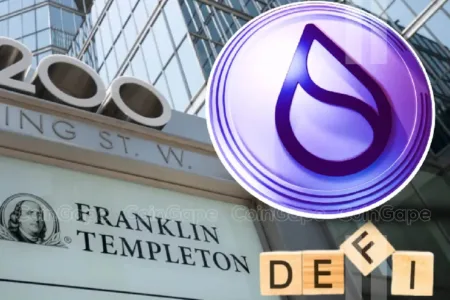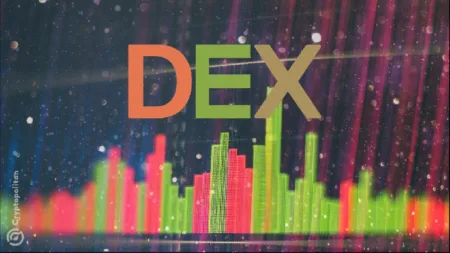Institutional holders of bitcoin who want to earn a yield on their assets in commonly used DeFi protocols today can only do so in size by sending it to BitGo for wrapped bitcoin (wBTC).
Launched today, DLC.Link’s new trust-minimized way to wrap bitcoin is looking to become a viable alternative.
The “DLC” in the name stands for Discreet Log Contracts, which preconfigure the conditions under which locked bitcoin (BTC) can be transferred, meaning the owner retains full ownership of their coins on the Bitcoin network.
A representation is then minted on a target chain as dlcBTC — an ERC20 token which debuts on Arbitrum.
Read more: Sommelier DeFi strategy vaults now live on Arbitrum
According to Aki Balogh, co-founder and CEO of DLC.Link, the design ensures that the BTC can only go back to the address of the original depositor.
“It’s literally a theft proof protocol,” Balogh told Blockworks.
The process makes use of a set of “attestors” — trusted node operators that run both a Bitcoin full node and a node on the destination chain — which function like an oracle, monitoring blockchain events and validating outcomes.
At launch, seven attestors will participate, each holding a private key shard. A threshold of five is required to be able to move the bitcoin on-chain, Balogh said, noting that even in the event of collusion they could not steal the depositor’s bitcoin and at worst only censor their ability to unlock it.
“We are starting with seven named institutions that have brands and that have something to lose from a reputation perspective if they collude,” Balogh explained.
The project’s plan is to progressively decentralize, making use of a DLC token beginning in the third quarter.
This mechanism is in contrast to other systems for bridging or staking bitcoin, like Babylon and Nomic, which rely on additional validator sets to protect deposited BTC.
In the case of DLC.Link, the user self-wraps and doesn’t send their BTC to any external address.
Nomic’s co-founder Matt Bell told Blockworks the DLC approach is “something we even want to get to eventually.”
“I think that’s a smart way to do it, but that is a fundamentally different thing than Babylon-based staking,” Bell told Blockworks.
Read more: Liquid staked bitcoin provides new yield option for BTC holders
The redemption process allows users to burn the dlcBTC tokens through the issuing contract. Attestors then build a consensus to release the user’s locked bitcoin, rather than relying on a single custodian like BitGo to retrieve the original BTC.
“We took it from a more maxi perspective,” Balogh said. “You can’t ever trust an intermediary and expect it to scale to trillions of dollars of value — no bridge or custodian would be secure enough to hold that much.”
The project mirrors BitGo’s merchant system, where a set of companies receive a license from the wBTC DAO. DLC is onboarding the same companies that are wBTC merchants to also become dlcBTC merchants, Balogh said.
The first merchant is Amber Group, which sought a faster and cheaper way to deploy bitcoin on Ethereum, supported by the Arbitrum Foundation.
DLC.Link charges a mint and burn fee, but one which compares favorably with wBTC from BitGo, Balogh said.
A BitGo spokesperson told Blockworks its fees are variable based on several factors such as speed and volume of conversions.
Although the product is competitive with BitGo, dlcBTC requires merchants to use a custodian or wallet that supports Taproot, a scarce bunch which includes BitGo, Ledger Live and Cobo.
“[BitGo has] actually been surprisingly open-minded, and maybe that’s because they see that this is actually a future solution that they don’t want to miss out on,” Balogh said.
Amber Group is building Taproot support into their proprietary wallet and Balogh expressed pride at driving forward Taproot adoption.
Read more: Satoshi-era Bitcoin code idea gets a boost from Taproot Wizards
Once on Arbitrum, dlcBTC will be deployed in Curve and Uniswap pools, and is expected to find its way into borrowing and lending protocols.
Secondary trading through DeFi protocols is the only way retail users can access dlcBTC since, like wBTC, it can only be minted and redeemed by merchants.
A partnership with Swiss fund STS Digital will offer covered calls on dlcBTC, Balogh said.
THORchain provides an entirely different way to earn yield on native bitcoin.
Read more: Native bitcoin in DeFi — This DEX wants to boost trust
In the future, Balogh expects dlcBTC to be available on other chains as well, either natively or using a cross-chain messaging protocol like CCIP or Wormhole.
“We’re following customer demand on which chains and where we should go, but Arbitrum seemed a really good choice for starters,” he said.
Read the full article here









